Should I get a massage during Covid????Is it safe to get a massage during Covid? Yes. Let me start with the answer and work backwards, in case you don't like to read alot :)
I have been wanting to write this post for a while. The pandemic has been extremely hard on Massage Therapy. When Covid restrictions hit, we all shut down, for me it was from March 2020 until about September/October of 2020, and even when returning, I only saw one client per day; no couples massage etc. We were all scared and unertain. After all, even more so than restaurants, a massage takes place in a small confined spaced. We are in a room for an hour or more, what could sound more dangerous? And the irony is that because of Covid isolation, massage, human contact and touch was needed more than ever. So what to make of things? Well fast forward one year, and this is what we know: People are hyper aware of Covid vs in the beginning when no one knew anything. People are masking. People are sanitizing. People are in general avoiding large crowds of strangers. People are getting vaccinated by the millions. The most vulnerable and the super spreaders sadly have passed away in large numbers. I myself lost a cousin in the first few weeks and it was beyond horrible. In short the world is adjusting to a new normal. I don't envision a day when the government or scientists will issue an "all clear" or "its over" type of announcement. I envision more that we will roll into a period where masks are "recommended." In Japan, a densely populated country, citizens have been wearing masks long before Covid. So what is it that makes massage so safe? Nothing really. It is a calculated risk. But the empirical evidence over the past 6 months suggest it is no more dangerous than not getting a massage. And there are huge benefits....to your immune system, to your mind, to your sense of well being. There is no statistical evidence to suggest massage contact poses any greater danger than any other activity outside the home. It is a numbers game and a measured risk. I cannot recommend that you go get a massage but I can say that more than ever I think it is needed and if you feel like you could benefit, then I would consider making an appointment and simply enjoying the experience. In my own practice as I said, I am vaccinated, I see half the number of clients I used to see to spread out the space in between. We perform extra sanitation measures. We are masked when you come in and leave. Masking while on the table I have found to be largely unnecessary so it is your personal choice. I do wear a mask. Covid has robbed us of much of the rhythms and simple pleasures of daily life. Covid is here like an unwelcome relative its not going anywhere. Everyone is doing their best and it is time, I believe to start to return to activities like massage. Of course things could change; a new strain, or different outbreaks, in which case the world may have to hunker down again. Until then, please consider returning to your favorite massage therapist if you have been thinking about it. Ask questions of their practices, feel safe and enjoy being human again. This is one therapists opinion. I am not a scientist nor am I giving medical advice, It is simply my personal opinion.
0 Comments
- By Ginny Vickers I've wanted to write a blog about cancer and integrative therapies. But what was holding me back was trying to figure out what to write about first, since there's so much information I want to share. So here I am - ready to share my passion for oncology massage, which truly feels like my mission. In my blog posts I’ll talk about what originally led me to this work, what happens when one receives a cancer diagnosis, cancer and its side effects, living with cancer, end of life care, care giver support, research supporting oncology massage, and healing versus curing... But where I want to begin is to talk about “healing versus curing." I bear witness to this all the time. I see it here at work,. I see it with my patients in hospice and I see it with the kids at Tufts Floating Hospital. Let's face it, when one receives a cancer diagnosis, it's a game changer. After the initial shock, when the dust begins to settle, a cure is what one aims for. And because we are at an unprecedented precipice in cancer treatment (i.e. immunotherapy), this is a real possibility in many scenarios. I've seen people "cured" - or more accurately the term NED (no evidence of disease) is used. My brother is one such medical miracle; over 10 years now remission from stage 4 metastatic melanoma. His oncologist is still scratching his head, albeit with a huge smile... Some cancers of the blood are deemed curable, in particular ALL (the most common form of leukemia in children), with a very high survival rate. In the short time I've been working in the pediatric hematology/oncology clinic at Tufts, I see this extraordinary chain of events played out weekly. Surgery, radiation, and chemotherapy - all lifesaving - come at a cost. The stories I hear from my patients and clients all share a similar theme; their bodies are not the same. Yet oncology massage can bring bodies to a place where they move easier due to an increased range of motion, it can soften tissues that are rigid and scarred, and it can decrease pain and help to relive feelings of anxiety. It can indeed begin to change the body. These bodies and minds eventually come to accept this as their new normal...and this can be called "healing." The simple and timeless act of "laying of hands"on another, is for me what this is all about and where the healing occurs. There is something so profoundly sacred in this exchange. It does not need to be proven nor researched. I trust this process and I am beyond fortunate and humbled to call this my work. "Touch was never meant to be a luxury. It is a basic human need. It is an action that validates life and gives hope both to the receiver and the giver." ~ Irene Smith How often do you hold hands?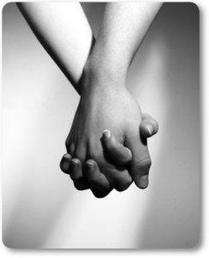 Holding hands is an ordinary activity that we see and can do every day. It can signify love or friendship.. It could be that if you don't have a significant other that you don't feel like there is an opportunity for hand holding. That is simply not true, Its partly cultural. Society today, in particular American culture, increasingly mis-associates almost all touch with sex and thereby discourages touch. .Yet this tiny, simple behavior triggers chemical reactions in our minds that make us feel loved, happy, cared for, and respected. Non-verbal communication is important to understanding human behavior. Holding hands is one small fundamental way we can positively impact our lives. When we hold hands, the nerves in our skin communicate with our core nervous system, producing hormones that make us feel pleasant and warm. There’s much more to it, of course, and new studies are emerging which explore the positive psychological effects of human touch today. Here are seven benefits of holding hands which you may not have realized existed: 1. Holding hands is a stress reliever Holding hands with your significant other or another decreases the level of a stress hormone cortisol. Even the touch of a friend or a teammate can make us feel more content, connected, or better about ourselves. When we are stressed out, a light touch on our hand can help ease the strain, both physically and mentally. Our skin also gets more sensitive when cortisol is rushing through our bloodstream, so the touch of a helping hand will have a significantly larger impact. The largest concentration of nerve endings is contained inside the hands and fingertips. This is the subject of another blog post. So, next time you’re having a really tough day, get together with your partner or a friend and ease the stressful day with touch. 2. Holding hands boosts love & bonding Oxytocin is the hormone behind this benefit. Oxytocin strengthens empathy and communication between partners in a relationship, which is proven to be a contributing factor for long-lasting, happy relationships. Holding hands with your partner will improve your relationship and reinforce a bond that will impact the quality of your relationship significantly. Couples who have happy relationships hold hands automatically, sometimes without even noticing, because of a habit developed by their nervous systems. Holding hands produces the oxytocin, which makes us feel happier and more loved. 3. Holding hands is good for your heart Besides relieving stress, holding hands lowers your blood pressure, which is one of the major contributors to heart disease. When we’re clasping fingers we’re not just easing stress and improving our relationships – we are providing a comfortable sensation that helps our heart. The power of a warm touch goes beyond the health benefits to the heart; A study from Behavioral Medicine supports this. 4. Holding hands helps relieve or cope with pain While enduring pain, humans have the natural reflex to tighten their muscles. Think of childbirth – husbands are typically inside the delivery room holding their wife’s hand while she’s going through labor. The reflex to grasp our partner’s hand comes as second nature: It’s always easier to endure pain while holding hands with your soulmate. 5. Holding hands fights fear Remember that horrible scene in the last horror movie you saw that made you want to jump out of your chair? Luckily, your darling was with you to hold your hand and make you feel safe. The human brain responds to sudden stimulation using adrenaline; this stimulation gets our blood pumping and releases high levels of cortisol throughout our body. During these moments, our natural reaction is to hold hands with someone we trust. It varies from person to person, but a large portion of women will instantly grab their partner’s hand. That’s the intuitive way to fight off nerves. 6. Holding hands provides a sense of security Simple hand holding is a source of safety and comfort for young children. Remember when your parents taught you to how to cross the street or walked you down a crowded sidewalk? Or when you were learning to ride a bicycle? Insecurity disappears when we have a hand to hold and allows us to more easily conquer obstacles. The security that parents provide their children by holding hands shapes their children’s behavior and their way of thinking. Additionally, the sensation of safety goes both ways; parents also feel safer when their children are within their grasp. 7. Holding hands is just plain comfortable Everybody loves comfort. The sensation of holding hands often provides a comfy feeling while talking a walk. One example is placing your hands inside a jacket pocket to warm them up on those cold December nights when you decide to take a stroll. Even with gloves, we love to hold hands. It bonds us; it provides lovely sensations and gives us quality time with people we care about. Holding hands comforts, soothes, is a source of security, and an aid for stress. Do you enjoy the comforting sensation of holding hands? How often do you hold hands ? Why or why not? ~ with Aloha This article was excerpted and created in large measure from an article written for LifeHack by Dejan Kvrgic TOUCH Why do we close our eyes when we dream? when we kiss ? When we cry? Because some of the most beautiful things in life are felt, not seen. Befriend your body and awaken to your sense of touch Aloha. #touch #humanbody #healing #massage #healinghandsbodywork #zen #mindfulness #yoga #boston #marthasvineyard When we touch another person we exchange energy. There is no way to avoid the fact that a kind of energetic communion takes place, even in such seemingly innocuous acts as shaking hands or touching another on the shoulder. Touch itself, communicates a great deal energetically, and actually influences our own energy field. This is something we all know intuitively
- Aloha Surprising facts about touch
Touch is perhaps the most overlooked sense. Every one of us receives tactile information about the world around us every second of the day. Right now, if you're sitting, your bottom is being squished into your chair. Your fingertips are probably touching a mouse, or swiping the glass of your phone. All this information is so omnipresent, in fact, that the only way to make sense of it is to tune most of it out — you probably weren't paying attention to these sensations until you read those words. "You can't turn off touch. It never goes away," says David Linden , a neurobiologist at Johns Hopkins and author of the new book Touch: The Science of Hand, Heart, and Mind. "You can close your eyes and imagine what it's like to be blind, and you can stop up your ears and imagine what it's like to be deaf. But touch is so central and ever-present in our lives that we can't imagine losing it." In the book, Linden explores all sorts of fascinating aspects about this enigmatic sense. Your brain pays wildly disproportionate attention to touch on different parts of your body The cortical homunculus — is a human figure scaled to match the proportions of how touch sensors are represented in the brain. "The part of your brain that processes touch information has a map of your body surface. But this map is very highly distorted," Linden says. "It over-represents areas that have lots of fine touch receptors (like the face, the lips, the tongue, and the fingers) and under-represents areas that don't have many receptors (like the small of your back, your chest, and your thighs)." These receptors, he says, come in four varieties. "There's one receptor for sensing vibration, one for tiny amounts of slippage, one for stretching of the skin, and one that senses the finest kinds of textures. The last one, called a Merkel ending, is only in the parts of your body you use to feel something really finely — like your fingertips and lips." You have a special system for feeling emotional, social touch "There are two touch systems," Linden says. "One that gives the 'facts' — the location, movement, and strength of a touch — and we call that discriminative touch." "But then there's the emotional touch system. It's mediated by special sensors called C tactile fibers, and it conveys information much more slowly. It's vague — in terms of where the touch is happening — but it sends information to a part of the brain called the posterior insula that is crucial for socially-bonding touch. This includes things like a hug from a friend, to the touch you got as a child from your mother, to sexual touch." "It's not just a different kind of information that's conveyed by the same sensors in the skin that allow you to feel a quarter in your pocket. It's a completely different set of sensors and nerve fibers that wind up in a different part of your brain." Touch is mysteriously crucial for a baby's development "The best examples of this come from Romanian orphanages after Ceaușescu's fall, when there just weren't enough people around to take care of babies. They were barely touched during the day," Linden says. "These kids didn't just have a host of emotional problems — though they were depressed and had high instances of schizophrenia, bipolar disorder, and other issues — but they also had a whole raft of physical ailments. They had weakened immune systems, and skin ailments." "Other research has confirmed this phenomenon. We're not entirely sure why it happens, but it seems that early touch experience is extraordinarily important for development both cognitive function and a healthy body." "This is why, nowadays, when premature infants are born and put in isolators, they're taken out for a few hours a day, and pressed against a parent's skin. Initially, when isolators were first invented, people thought you should just leave them in there alone, so they don't get infected. But then they might not get touched for the first two months of life, which turns out to be disastrous." The emotional context changes our physical experience of touch As we all know well, touch can actually feel physically different based on the social context of the encounter. Consider the example of an arm around the shoulder, said Linden: Whether it's coming from a good friend, your lover, your boss or a person you don't like very much will change the way you experience that touch, even if your skin is being stimulated in the exact same way. "It's not just that the context is different -- it will actually feel different," Linden explained. "The reason is because these emotional touch brain areas are getting information about the social context from other parts of the brain." Because of this separation of the two pathways used for processing touch, is that in some people with certain brain disorders, the physical sensation of pain can be separated from its emotional impact. So too, can the pleasurable aspect of touch be removed from the actual sensation. Touch shapes first impressions of people in weird ways "Incidental touch can help form our impressions of people's character," Linden says. "In one experiment people were holding either a cold iced drink or a hot drink when meeting someone, and those with a hot drink literally rated the people they met as warmer — as in, having a more pro-social personality. They didn't rate them better overall — say, as smarter, or more competent — they just rated them as warmer." "There was another study in which people evaluated others' resumes on a clipboard, and if they were on a heavy clipboard — rather than a really light one — they were rated as having more gravitas, more authority. Once again, people didn't think they were smarter, or better team players, or things like that. The weight made them seem weighty." "When these studies first came out, no one really believed them — but they've since been well reproduced. It's also not a quirk of English, it happens across cultures. It's been done in Papua New Guinea." "It points to an idea that's come up in social psychology again and again: if you're evaluating someone for the first time, the first decision you make is friend or foe. Is this person warm, or are they a threat? Then the second thing you evaluate is whether they're competent — which means that it matters if they're a threat or not. And it seems that touch information helps us make these distinctions, even when it's irrelevant." We still don't really completely understand how sexual touch works "We know embarrassingly little about it," Linden says. "Here's a very basic question that we can't fully answer: what makes the genitals different from the rest of the body? Obviously other parts of the body can lead to sexual stimulation, but there's something special about the genitals. And we just don't know what it is." "If you look at the skin in the genitals, there are some structures — including one called a mucocutaneous end organ — that are present there at higher densities. So it seems likely that it's involved in sexual sensation. But in truth, we don't have a way of activating those nerve endings on their own, so we just don't know." Sexual sensation affects so much in our lives, our social organization, and what makes us human — and yet we know embarrassingly little about the biology of it. Touch can be therapeutic A large body of research -- much of which has been conducted by Tiffany Field of the Touch Research Institute at the University of Miami -- suggests that therapeutic massage can be useful for a number of physical and mental ailments. These therapeutic applications include pain relief, addiction recovery, and maintaining emotional equilibrium, cognitive function and mobility among an aging population, Linden suggested. Research has also shown that massage may be an effect way to treat anxiety, insomnia, headaches and digestive problems. |
A Really Good Massage BlogAbout MeI write about things that I myself need to be mindful of. ways in which I would like to improve. It is not from the perspective of preaching - but rather writing helps me work out what I myself need to do - we are all in this together.
Archives
February 2024
Categories
All
|
AWARD WINNING
|
|

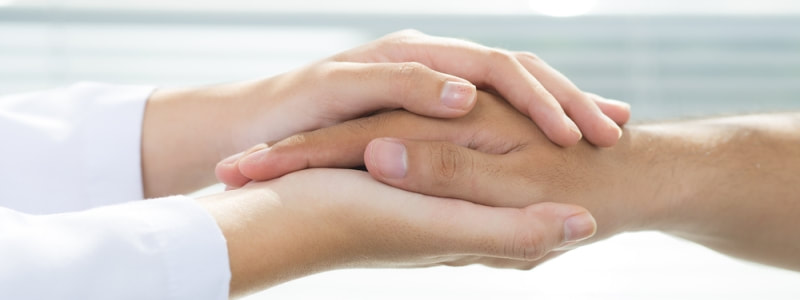
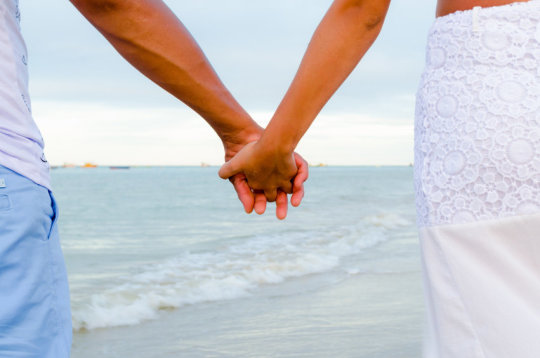
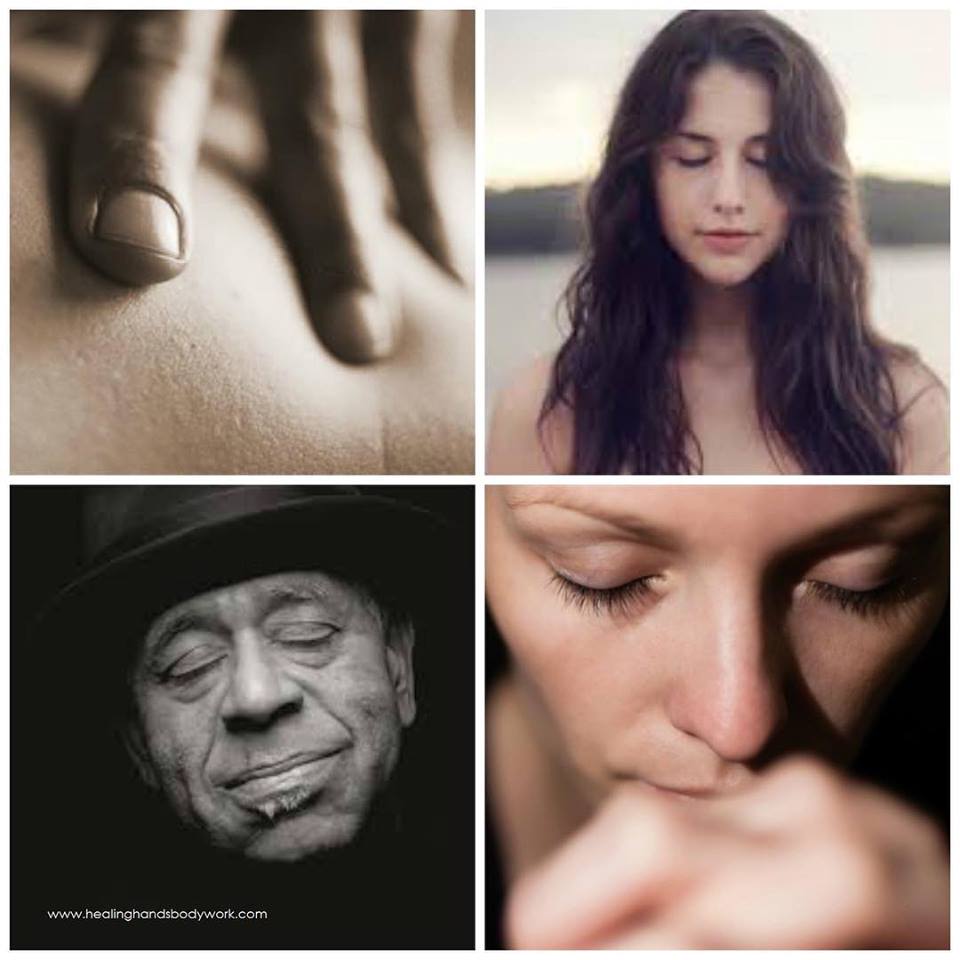
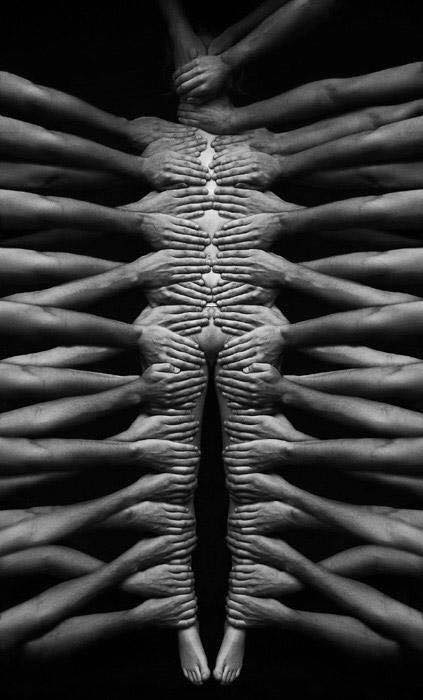
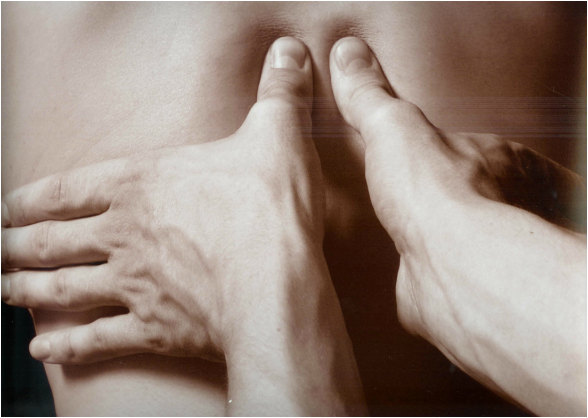
 RSS Feed
RSS Feed
